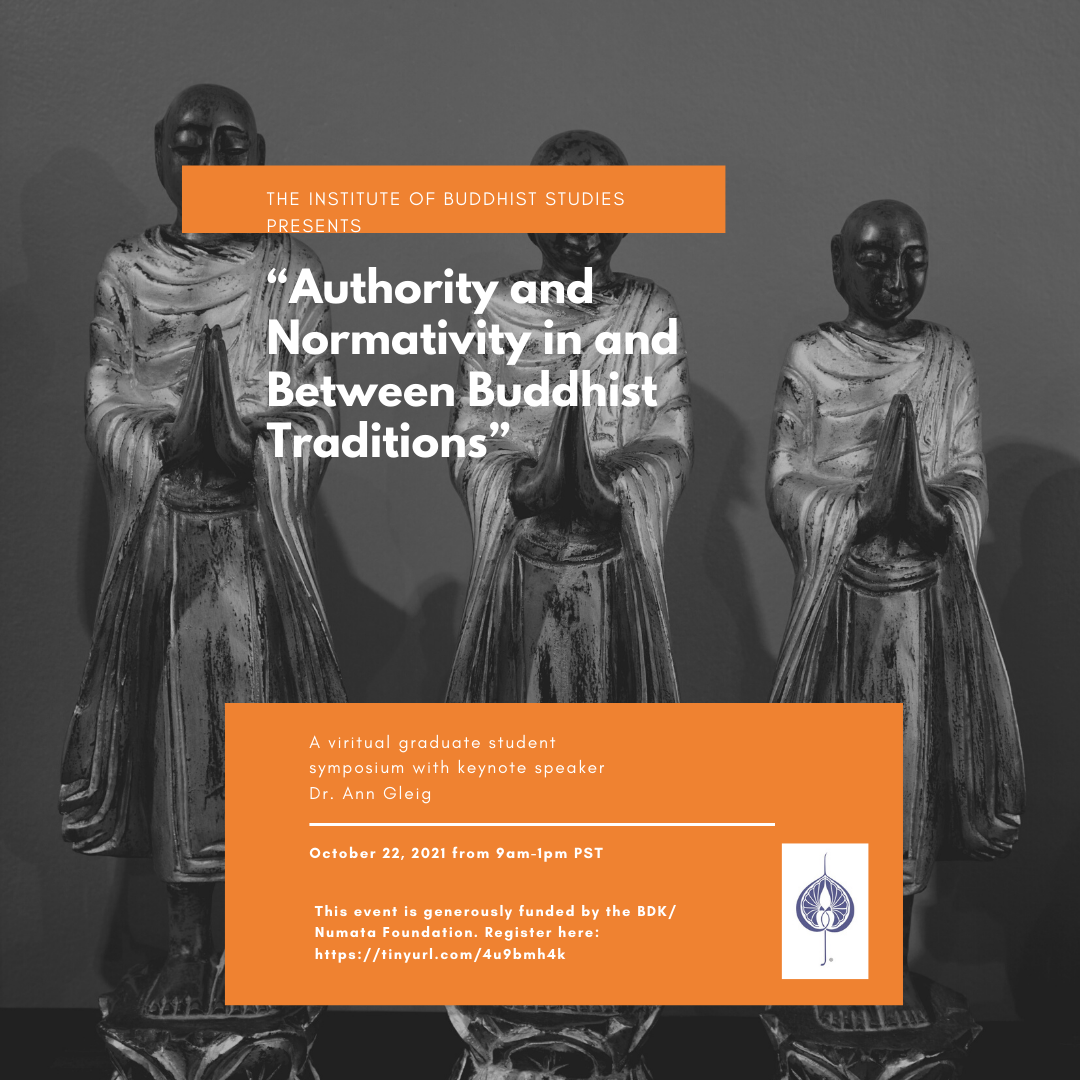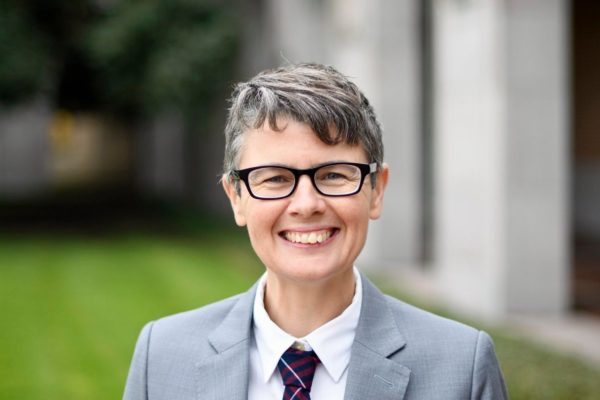
- This event has passed.
2021 Graduate Student Symposium
October 22, 2021
Authority and Normativity in and Between Buddhist Traditions
9 AM – 12:30 PM PT
Registration info here
The question “what is Buddhism?” is deceptively uncomplicated. Scratching beneath the surface of this question presents a host of issues surrounding who has the authority to make normative claims about the Buddhadharma, what it includes and what it excludes.
What resources do Buddhist authorities, laypeople, and academics draw on to define Buddhism for themselves and for others? What are the ethical and philosophical ramifications of drawing such boundaries for a tradition that emphasizes compassion for others and the impermanence of all conditioned phenomena? What are the responsibilities of academics, taken as trusted authorities on their subject of expertise, who present the Buddhist traditions for the public in a putatively “objective” fashion?
This Graduate Student Symposium on “Authority and Normativity In and Between Buddhist Traditions” brings together students and scholars from a variety of institutions, disciplines, and theoretical backgrounds, to explore these issues in innovative ways.
The keynote Speaker for the Symposium is Dr. Ann Gleig. Dr. Gleig is an associate professor of religion and cultural studies at the University of Central Florida and author of American Dharma: Buddhism Beyond Modernity (Yale University Press, 2019).
Her keynote lecture is entitled “There’s Nothing Buddhist About This”: Reflections on Racial Justice, Regulation, and ‘Real’ Buddhism.
In recent years, racial justice has come to the forefront of American Buddhism as a response to white supremacy both within and outside of Buddhist communities. In her lecture, Dr. Gleig will consider attempts by white Buddhists to delegitimize Buddhist racial justice work on the grounds that it represents an intrusion of progressive values into the tradition and is not “real” Buddhism. She identifies the strategies by which white Buddhists attempt to define what Buddhism is and who is and is not Buddhist. Next, she will consider the role of Buddhist Studies in such regulation. In what ways have Buddhist Studies scholars colluded with the white Buddhist backlash to racial justice and in what ways might we disrupt it? Reflecting on the reception of American Buddhist racial justice work in both practice and academic communities, Dr. Gleig will suggest, illuminates many assumptions around authority and normativity in Buddhism and Buddhist Studies.
Please see the call for papers here.
Schedule:
9:00 – 9:45 – Opening Remarks & Presentations from Kali Cape & Devin Zuckerman
Kali Cape – How Buddhists Redefined Norms for Sexual Ethics: Lessons from Discursive Practices in 14th Century Tibetan Consort Literature
Devin Zuckerman – ‘No One Does this Anymore’: Shifting Perspectives on Matter, Materiality, and Elements in Tibet’s Great Perfection Tradition
9:45 – 10:00 – Q & A with Presenters
10:00 – 10:15 – Short break
10:15 – 11:00 – Presentations from Ray Buckner & JP de Guzman
JP deGuzman – “A Buddhist Deplores Inequality”: Discourses of Engaged Buddhism in The American Buddhist, Wheel of Dharma, and Beyond
Ray Buckner – Black Feminist Buddhism: Forging a Black Feminist Theoretical Orientation to American Buddhist Studies
11:00 – 11:15 – Q & A Period with Presenters
11:15 – 11:30 Short Break
11:30 – 12:15 – Keynote Address by Dr. Ann Gleig
12:15 – 12:30 – Q & A with Gleig
This event is very generously supported by the BDK/Numata Foundation.

